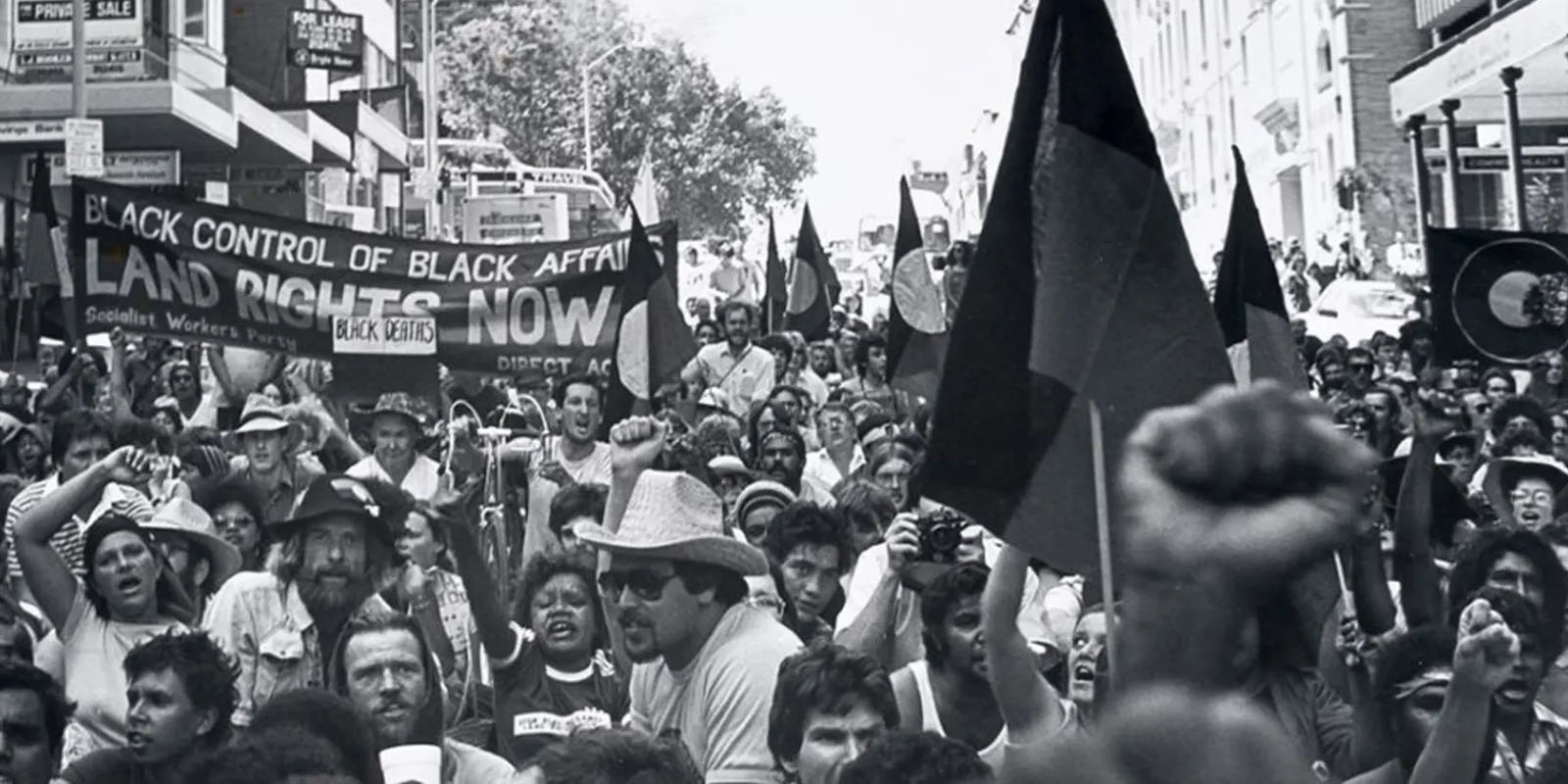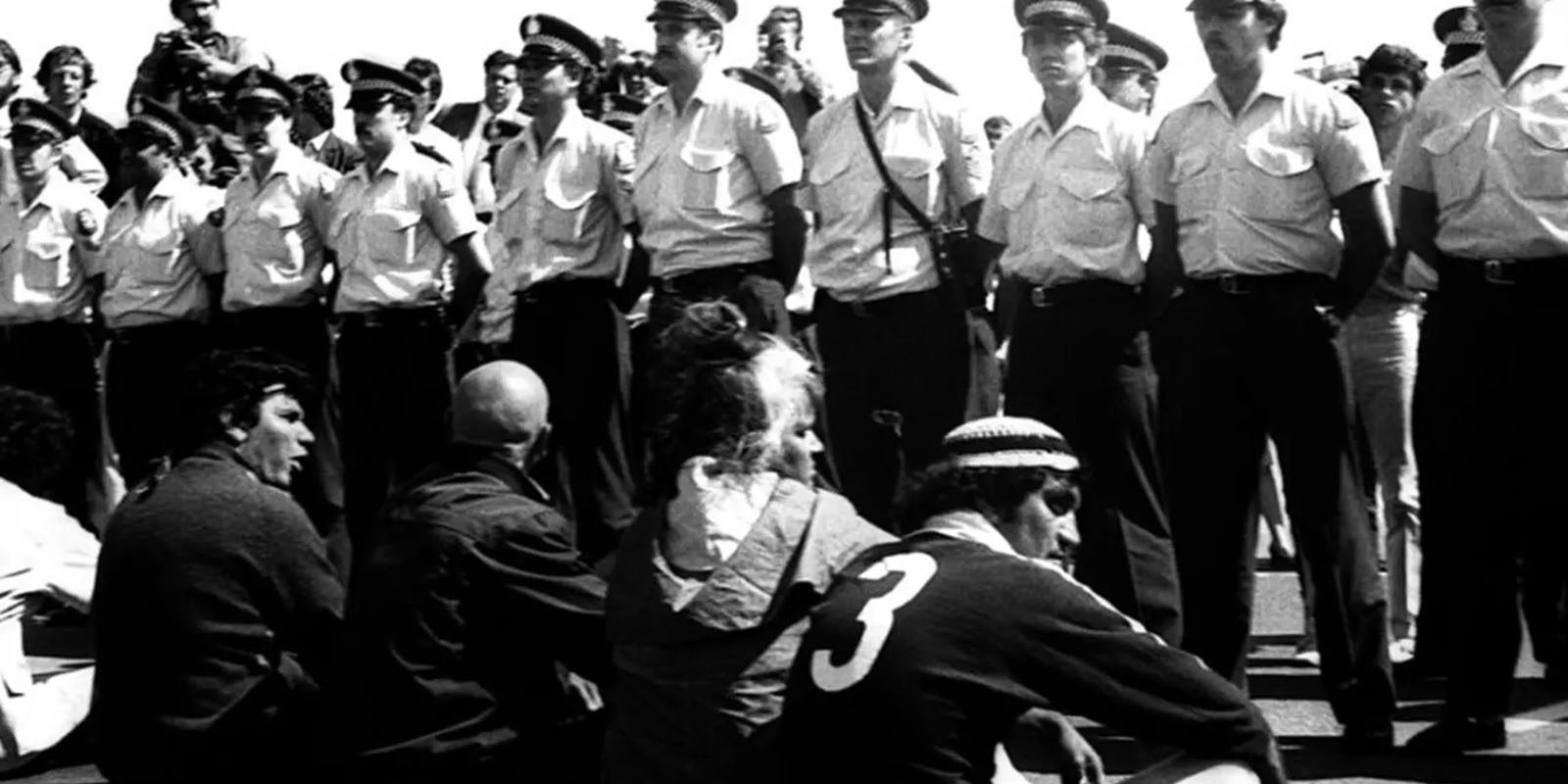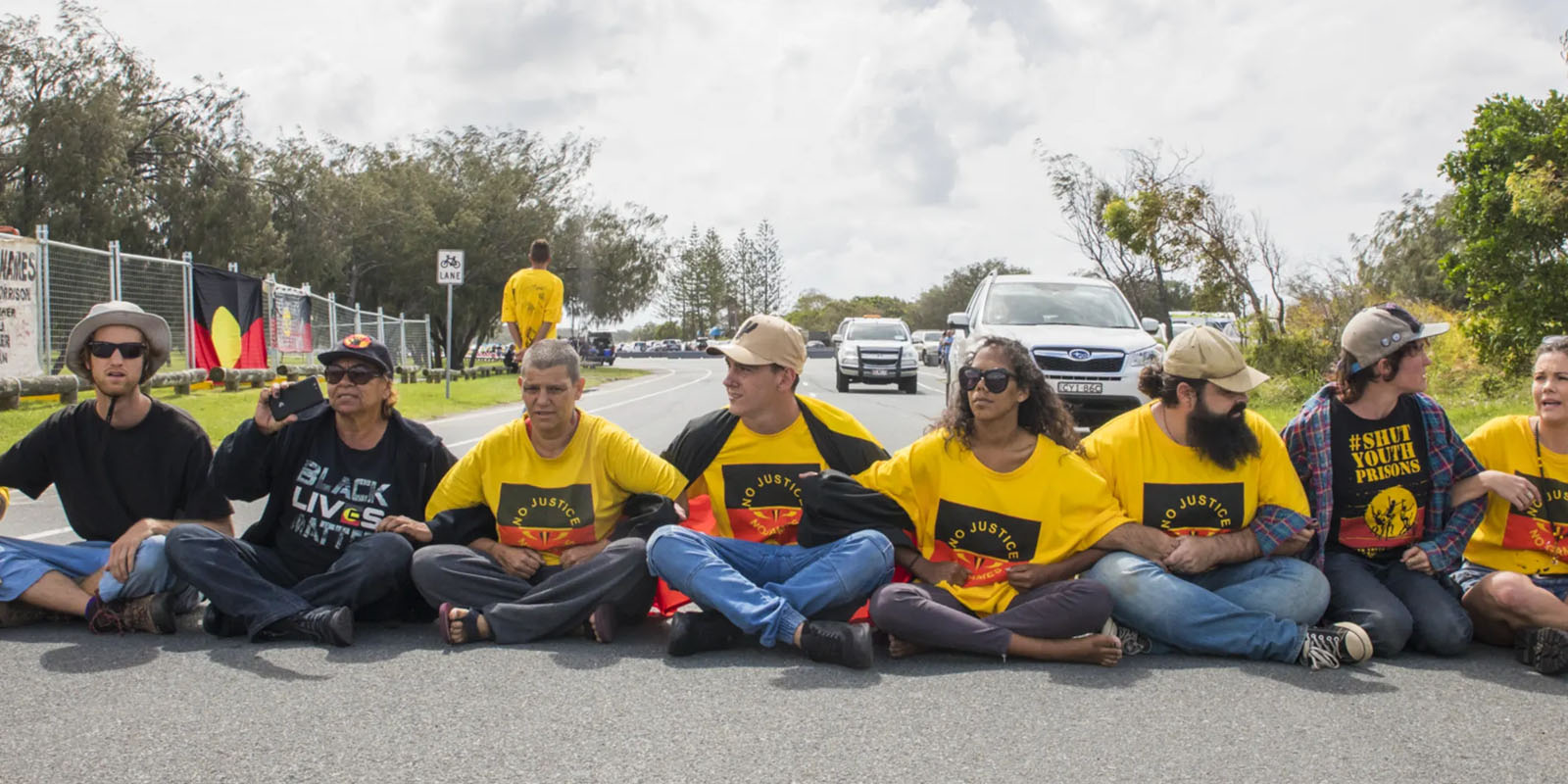In 1982 the Commonwealth Games were held in Brisbane. Aboriginal and Torres Strait Islander people used the international focus on the event to their benefit, bringing to light the injustices they faced every day by staging a protest.
Brisbane 1982 - Highlighting injustices
The Commonwealth Games is an international sporting event between current and former colonies of the British Empire held every 4 years. In 1982 they were held in Brisbane. The international attention the Games brought about provided an opportunity for Aboriginal and Torres Strait Islander people to highlight the injustices and discrimination they were facing.
The objectives of the protest were many and covered a range of different areas of Aboriginal and Torres Strait Islander life but two of the significant issues raised were land rights and control of Aboriginal affairs. The Aboriginal and Torres Strait Islander Community wanted complete ownership of their lands in Queensland and to be able to protect Country from mining.
SBS's 'The Feed' explores the history of the Stolenwealth Games protests from the early 1900s.
Legalities of the marches
It became clear as early as January of 1982 that activists were planning some sort of action for the Games. As the supposed ‘threat’ of Indigenous activity grew closer, the then Queensland Premier Joh Bjelke-Peterson declared a State of Emergency and proclaimed street marches illegal. Only two marches were approved by Queensland police making all other marches illegal. This meant that anyone who took part in unapproved marches could be arrested and charged under the new Games legislation. If a protestor was found guilty they faced a fine of up to $2,000 or two years in prison.


Image: A Land Rights protest in upper Adelaide Street in 1982. Brisbane Times.
The Protest
As the games drew near the Queensland Aboriginal and Torres Strait Islander Community began calling out for people to come and support the protests and demonstrations against the discrimination they were suffering.
Leaders of the Community had differing views what kind of action would get the best results. Some believed peaceful rallies and cultural festivities would best get the message across while others felt that it would make little impact and that they needed to be more forceful.
Aboriginal activist, academic and author Gary Foley speaking in 1982 in lead up to demonstrations against QLD government at the 1982 Commonwealth Games in Brisbane
On September 26 around 2,000 people marched for land rights. Protesters carried placards and banners and walked peacefully from the city to a park across the Brisbane River. It was considered Queensland’s biggest Aboriginal march at the time.
On September 29 another 1,000 people marched peacefully across central Brisbane in support of land rights. Hey held placards, banners and wore badges that read:
Stop playing games: land rights now!
A demonstration was held during the opening ceremony and police were called to have protesters removed. As the police moved in and began arresting people, protestors chanted 'the whole world is watching.' Thirty-nine people were arrested in that demonstration.
A further 104 protesters were arrested on October 4 during a land rights sit-in near the athletics stadium. According to The Age newspaper those who were arrested were the first people to be charged under the Queensland Government's Games security laws. Most charges were dropped over the next year. On the same day around 20 spectators sat quietly in the stands of the athletics stadium holding Aboriginal flags for the duration of the program.
Footage from the rally - 'Brisbane 1982 State of Emergency'
Another rally was held on October 7. Around 500 people attended. Brisbane activist, Ross Watson, spoke to the crowd saying that "we are going to march today…we have no permit…we will be breaking the law. If you march you are likely to be arrested." About 400 police descended on a group of protestors who broke off from the main and arrested around 260 protesters including the then Governor-General’s daughter Ann Stephen.
This was a stark example of police and government suppression of our people’s right to protest and free speech. Despite the harm caused by the authorities, the people involved fought hard to have their message heard.


Image: Activists peacefully protesting. Brisbane Times.
Melbourne 2006 - Stolenwealth Games
In 2006 the Commonwealth Games made a return to Australia and this time Melbourne was hosting. Like the 1982 protests Aboriginal people wanted to use the media attention to draw light to the disadvantage they faced in Australia.
Activist group BlackGST (Genocide, Sovereignty, Treaty) planned demonstrations at prominent Games events. They stated these demonstrations would continue unless the Government agreed to a range of demands such as an end to Aboriginal genocide, Aboriginal Sovereignty and the signing of a treaty. It was at this time that the Games started being referred to as the ‘Stolenwealth Games.’
BlackGST stated that "the convergence will be held as a peaceful, family-focussed demonstration against genocide, and for the restoration of sovereignty and the negotiations towards a Treaty." One of those peaceful demonstrations was held on the Yarra pedestrian bridge between Southbank and Flinders Street Station, where a group of about 30 people held two-metre-high letters spelling ‘Stolenwealth Games.’
The Stolenwealth Games were endorsed by the Victorian Traditional Owner Land Justice Group and the Aboriginal Tent Embassy and received support from both Aboriginal and non-Aboriginal people alike. However it still received a lot of heat from sections of the mainstream media that sought to turn the public against the protestors.
Gold Coast 2018 - Return to protest
In 2018 the Commonwealth Games were back in Australia this time in the Gold Coast. Once again Aboriginal activists planned a series of peaceful protest marches throughout, as well as a sit-in blockade, forums and cultural events.
The legacy of the 2006 protests continued, with Kooma activist, Uncle Wayne Wharton explaining that:
We call this the Stolenwealth Games because we were invaded. We are a country controlled by force.
The protests of the Stolenwealth Games succeeded in grabbing mass media attention and were able to once again start the discussion of Aboriginal and Torres Strait Islander people rights in this country.
An NITV news segment covering the range of protest activities engaged by Aboriginal activists.
Image: Protesters sit in the middle of the road in an attempt to stop the Queens Baton relay at the 2018 Commonwealth Games. Brisbane Times.
Sources used in writing this article:
- Commonwealth Games Brisbane & Aboriginal Protest, 1982, Museums Victoria
- Commonwealth Games Demonstrations - Brisbane 1982, The Koori History Website
- Activists plan to protest during the 'Stolenwealth' games, NITV
- 'The fight never left': Stolenwealth Games protesters draw on long tradition, The Guardian.

